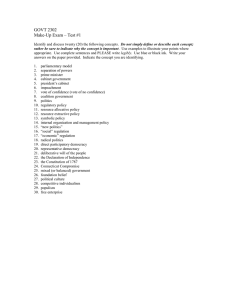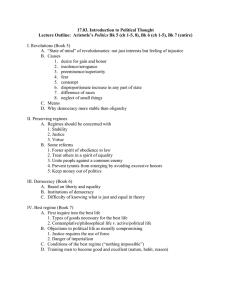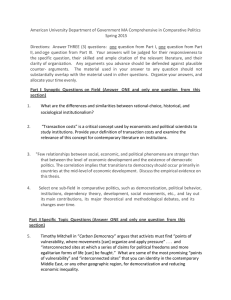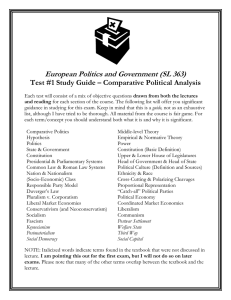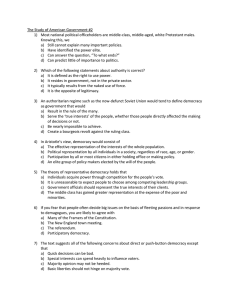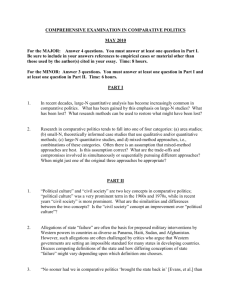European Politics & Government (SL 363) – Winter 2007-08 TUESDAY, FEBRUARY 19
advertisement
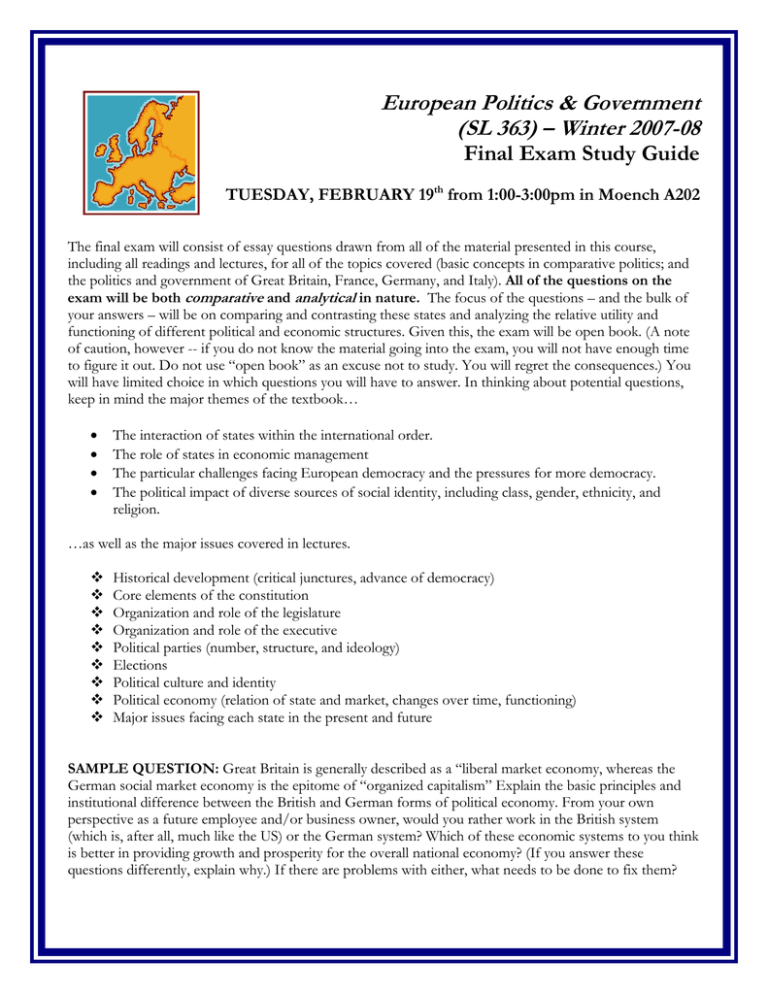
European Politics & Government (SL 363) – Winter 2007-08 Final Exam Study Guide TUESDAY, FEBRUARY 19th from 1:00-3:00pm in Moench A202 The final exam will consist of essay questions drawn from all of the material presented in this course, including all readings and lectures, for all of the topics covered (basic concepts in comparative politics; and the politics and government of Great Britain, France, Germany, and Italy). All of the questions on the exam will be both comparative and analytical in nature. The focus of the questions – and the bulk of your answers – will be on comparing and contrasting these states and analyzing the relative utility and functioning of different political and economic structures. Given this, the exam will be open book. (A note of caution, however -- if you do not know the material going into the exam, you will not have enough time to figure it out. Do not use “open book” as an excuse not to study. You will regret the consequences.) You will have limited choice in which questions you will have to answer. In thinking about potential questions, keep in mind the major themes of the textbook… • • • • The interaction of states within the international order. The role of states in economic management The particular challenges facing European democracy and the pressures for more democracy. The political impact of diverse sources of social identity, including class, gender, ethnicity, and religion. …as well as the major issues covered in lectures. Historical development (critical junctures, advance of democracy) Core elements of the constitution Organization and role of the legislature Organization and role of the executive Political parties (number, structure, and ideology) Elections Political culture and identity Political economy (relation of state and market, changes over time, functioning) Major issues facing each state in the present and future SAMPLE QUESTION: Great Britain is generally described as a “liberal market economy, whereas the German social market economy is the epitome of “organized capitalism” Explain the basic principles and institutional difference between the British and German forms of political economy. From your own perspective as a future employee and/or business owner, would you rather work in the British system (which is, after all, much like the US) or the German system? Which of these economic systems to you think is better in providing growth and prosperity for the overall national economy? (If you answer these questions differently, explain why.) If there are problems with either, what needs to be done to fix them?

